#pswp
Explore tagged Tumblr posts
Text
Study Abroad in Canada: Exploring Post-Study Work Permits
Studying abroad in Canada is a dream for many students worldwide. With its welcoming culture, world-class universities, and diverse job opportunities, it’s no wonder that Canada attracts thousands of international students every year. However, the path to building a future in Canada doesn’t end with graduation. Many students seek to stay and work in the country after completing their studies, and for that, the post-study work permit (PSWP) is a crucial tool.
If you're considering Studying abroad in Canada, understanding the post-study work permit process is essential. This post will explore everything you need to know about the PSWP, from eligibility requirements to application tips, and how it can shape your future in Canada.

What is a Post-Study Work Permit?
A Post-Study Work Permit is a work visa granted to international students who have completed their studies at a designated learning institution (DLI) in Canada. With this permit, graduates can work in Canada for a period that depends on the length of their study program.
Unlike many other countries that restrict graduates from working after finishing their studies, Canada offers a unique opportunity to gain hands-on work experience in the country. The post-study work permit allows you to apply for jobs in a variety of sectors, making it a stepping stone for those who aim to build a career and even pursue permanent residency in Canada.
Eligibility Criteria
To qualify for a PSWP, you need to meet certain requirements:
Full-time Study Program: You must have completed at least eight months of full-time study at a DLI in Canada. Programs can range from undergraduate degrees to postgraduate diplomas or certificate programs.
Valid Study Permit: You should have a valid study permit when you apply for the post-study work permit.
Completion of Studies: Your program should be completed successfully, and you must have received a transcript or completion letter from your institution.
Application Timeframe: You need to apply for the work permit within 180 days of receiving your final transcripts or completion letter.
The PSWP can last from several months to several years depending on the length of the program you completed. For example, if you completed a program lasting more than two years, you may be eligible for a PSWP that lasts up to three years.
Eligibility Requirements for Post-Study Work Permits
It’s important to understand the key eligibility requirements when applying for a PSWP. Here’s a breakdown:
Designated Learning Institution (DLI): Your study program must have been completed at an accredited Canadian institution, referred to as a Designated Learning Institution (DLI).
Full-time Enrollment: You must have studied full-time for the entirety of your program. Studying part-time or taking breaks during your studies might disqualify you from applying for a PSWP.
Program Duration: For programs shorter than two years, the duration of your PSWP will match the length of your program. If your program lasted 2 years or longer, you might be eligible for a PSWP of up to three years.
Valid Study Permit: You must have had a valid study permit while studying in Canada. If your study permit expired during your program, you may not qualify for a PSWP.
Additionally, students who completed an online or distance-learning program may have different eligibility rules. It’s important to verify whether your program and institution meet the necessary requirements for a PSWP application.
The Application Process for Post-Study Work Permits
Once you've completed your program and received your final transcripts or completion letter, you can start the process of applying for a PSWP. Here’s a step-by-step guide:
Step 1: Gather Required Documents
You'll need to prepare several documents for your application:
A valid study permit.
Proof of full-time study (transcripts, completion letter, or certificate).
Your passport and any other identification documents.
Step 2: Apply Online or via Paper Application
Applications for a PSWP can typically be completed online through the Immigration, Refugees, and Citizenship Canada (IRCC) website. The online process is usually faster, and you can track the status of your application. Alternatively, you can apply using paper forms, though this method takes longer.
Step 3: Wait for Processing
Processing times for a PSWP can vary. Generally, it takes around 2-3 months for your application to be processed. If you’re in a hurry, you can check whether there are any fast-track options available.
Step 4: Receive Your Permit
Once your application is approved, you’ll receive your PSWP, which will specify the terms, duration, and conditions of your work. The permit allows you to work for any employer in Canada in almost any occupation, giving you the flexibility to gain work experience in your field.
Benefits of the Post-Study Work Permit
Securing a PSWP has numerous benefits for international students in Canada:
Valuable Work Experience: The post-study work experience you gain can significantly enhance your resume and increase your chances of landing a full-time job in Canada or back home.
Pathway to Permanent Residency: The experience you accumulate while on a PSWP can count toward your eligibility for permanent residency in Canada. Many immigration programs, like the Canadian Experience Class under Express Entry, favor candidates who have Canadian work experience.
Financial Stability: Working in Canada allows you to support yourself financially, especially when adjusting to life after graduation. Earning an income can make your stay in Canada more comfortable and provide you with savings for the future.
Career Opportunities: Whether you want to pursue a career in technology, healthcare, finance, or another industry, Canada’s job market offers many opportunities for skilled workers. As an international graduate, you’ll gain valuable insight into the Canadian workplace culture and strengthen your career prospects.
Common Mistakes to Avoid When Applying for a Post-Study Work Permit
Applying for a PSWP is a straightforward process, but there are common mistakes that students often make. Here are a few to watch out for:
Missing the 180-Day Deadline: You must apply for the PSWP within 180 days after receiving your final transcript. Missing this deadline can result in ineligibility.
Incomplete Documents: Ensure all required documents are submitted, including proof of your full-time enrollment and study completion. Failure to include these can delay your application.
Working Without a Permit: It's crucial to wait until you’ve received your PSWP before you start working. Working without a permit can jeopardize your immigration status and future opportunities.
Applying Too Early: Don’t apply before you’ve received your final transcript or completion letter. You’ll need official proof that you’ve completed your studies.
Work Opportunities After Graduation in Canada
After you’ve secured your PSWP, you’ll have access to numerous job opportunities across various industries. Here are some key areas where international graduates are in demand:
1. Technology:
Canada’s tech sector is booming, with demand for skilled professionals in software development, artificial intelligence, cybersecurity, and data analysis.
2. Healthcare:
With an aging population and growing demand for healthcare services, Canada offers numerous opportunities for international graduates in healthcare, nursing, and medical research.
3. Engineering:
Canada’s infrastructure projects and energy sector provide plenty of job openings for engineers, particularly in civil, electrical, and mechanical disciplines.
4. Finance:
Canada’s financial sector is one of the strongest in the world, and graduates with expertise in finance, accounting, and economics are always in demand.
Transitioning from Post-Study Work Permit to Permanent Residency
While the PSWP offers a great way to gain work experience, many international graduates aim to stay in Canada long-term. Fortunately, there are several pathways to permanent residency (PR) through the work experience gained during your post-study work.
Canadian Experience Class (CEC):
The Canadian Experience Class, a component of Express Entry, is a popular pathway for individuals who have gained skilled work experience in Canada. If you work in Canada for at least 12 months on a PSWP, you may be eligible to apply for PR under CEC.
Provincial Nominee Programs (PNPs):
Some Canadian provinces offer additional pathways to PR through PNPs. Graduates who work in a specific province for a certain period may be nominated for PR.
Federal Skilled Worker Program:
International graduates with significant work experience in Canada may also qualify for PR through the Federal Skilled Worker Program, which requires meeting certain points criteria.
Challenges and Limitations of Post-Study Work Permits
While the PSWP offers many benefits, there are challenges to consider:
Work Permit Duration: The length of the PSWP is tied to the duration of your study program. If your program was short, your permit may be limited to only a few months.
Competitive Job Market: Canada’s job market is competitive, and landing a job may take longer than expected, especially in certain industries.
Limited Work Permit Flexibility: Some industries or roles may have restrictions on work permits, so it's important to review the terms and conditions.
Tips for Maximizing Your Post-Study Work Permit Experience
To make the most of your PSWP, here are some tips:
Build Your Canadian Resume: Ensure your resume is tailored to the Canadian job market, highlighting your skills, education, and any relevant work experience.
Network: Attend job fairs, industry conferences, and local events to build professional connections that could lead to job opportunities.
Job Search Strategy: Leverage online job boards, LinkedIn, and your university’s career services to find suitable job openings.
Cultural Adaptation: Adjusting to Canadian work culture is crucial. Be mindful of workplace etiquette, communication styles, and expectations.
Understanding the post-study work permit process is essential for international students who wish to stay in Canada after graduation. This permit offers a wealth of opportunities to gain work experience, earn an income, and potentially transition to permanent residency. By following the steps outlined in this post, you can maximize your chances of success and make your time in Canada both rewarding and fulfilling.
Also Read:
Financial Planning for Studying Abroad in Sweden
Choosing the Right University for Study in Sweden
Why Education Abroad in Sweden
FAQs
1. What is the Post-Study Work Permit in Canada?
The Post-Study Work Permit allows international students who have graduated from a recognized Canadian institution to work in Canada for a period equivalent to the length of their study program. The work permit provides an opportunity to gain Canadian work experience, which can lead to permanent residency.
2. How long is the Post-Study Work Permit valid for?
The duration of the PSWP depends on the length of your study program. If your program was more than two years long, you might be eligible for a work permit for up to three years. For programs lasting less than two years, the work permit will generally be valid for the same length as your program.
3. Can I apply for the Post-Study Work Permit while still studying?
No, you cannot apply for the PSWP until you have completed your program and received your final transcript or completion letter. You must also apply within 180 days after receiving your final documentation.
4. What types of jobs can I do on a Post-Study Work Permit?
With a PSWP, you can work in most job sectors, including healthcare, technology, engineering, and finance. You are not restricted to any specific type of work, which allows you to gain valuable experience in your field.
5. Can I apply for permanent residency after my Post-Study Work Permit?
Yes, gaining work experience in Canada through the PSWP can help you qualify for permanent residency through the Canadian Experience Class or other immigration programs such as the Provincial Nominee Programs (PNPs).
6. What documents do I need to apply for a Post-Study Work Permit?
You will need to submit your study permit, a completion letter or transcript from your institution, a valid passport, and proof of full-time enrollment during your studies.
7. Can I work before receiving my Post-Study Work Permit?
No, you must wait until your PSWP is approved before you start working. Working without a valid permit can jeopardize your immigration status.
8. Can I apply for a Post-Study Work Permit if my study program was online?
The eligibility for an online or distance learning program may differ. You should confirm whether your program qualifies with the Immigration, Refugees, and Citizenship Canada (IRCC).
9. What happens if I miss the 180-day deadline for applying?
If you miss the deadline, you may not be eligible for a PSWP. It is crucial to apply as soon as possible after receiving your final transcript.
10. Can I extend my Post-Study Work Permit?
The PSWP is usually a one-time permit, and extensions are not typically allowed. However, you may be able to apply for other work permits if you secure a job offer or meet other criteria.
#Study Abroad in Canada#Post-Study Work Permit Canada#Canada Immigration for International Students#Work Opportunities in Canada for Graduates#Canadian Experience Class
0 notes
Text


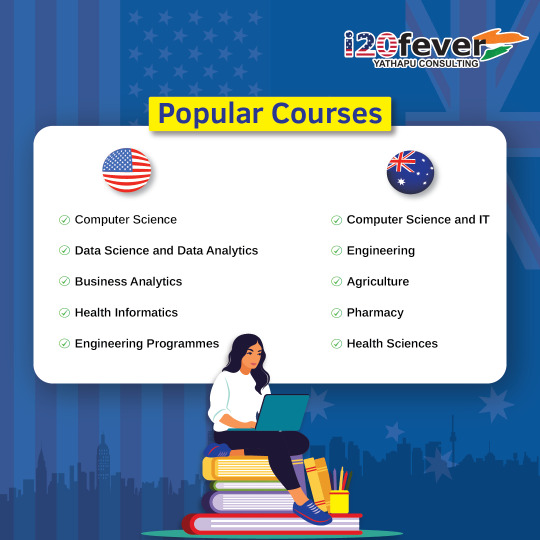



✈️Top study-abroad locations for students include the United States and Australia, both of which would be preferable for international students. It is quite usual to be confused about the choice between studying in the USA and Australia. This post will help you make an informed decision between studying in the USA or Australia.
#i20fever#aski20fever#studyabroad#abroadplans#studyinusa#poststudyworkvisa#pswp#studyinaustralia#spring2024#july2023#higherstudies#tuitionfees#scholarships#highereducation#virtualcounseling#admissionsopen#universityadmission#topuniversities
0 notes
Photo

That’s the episode, where they try to make them heterosexual. And, oh my, are they doing it wrong.
this scene lasts exectly 1 minute 29 seconds, and I can’t, what’s this show even
13 notes
·
View notes
Text

#Study in Australia 🇦🇺🇦🇺🇦🇺🇦🇺#👉 One of the TOP Study Destination in the WORLD#✅ Apply with the low band for Bachelor/Master's Degree.#✅ Get PSWP#✅ Gap acceptable#✅ No old Funds are Required.#✅ Funds Assistance#✅ File Visa with 10 years of Experience Consultants#👉 अभी अप्लाई करे (Apply Now)#For More Information Call Us#☎ +91 90667-90665#🏢 Address: S.C.O 99#Sector 119#1st Floor#Balongi#Mohali#canada#migratetocanada#immigratetocanada#canadavisa#canadaimmigration#settleincanada#SpouseVisa#openworkpermit#workpermit#canadaworkpermit#liveincanada#VisaConsultant#VisaRefused#ImmigrationProcess
1 note
·
View note
Photo

If Your Dream To Study In Australia Then Your Dream Come True Study in Australia Apply Your Study Visa In Australia's Top Colleges & Universities and Achieve Your Goals Apply For Upcoming 2021 Intake We are here to guide you IELTS 5.5 Bands Required 12th Passout Can Apply 4 Year PSWP Gap Acceptable High Visa Success Rate Call us: 9780890155 Website: www.thefrontierroots.com Email: [email protected] Address : SCO 79, 3rd Floor, Phase 2, Mohali (Pb). #studyinaustralia #australiavisa #studyvisa #australiastudyvisa #visa #visaforaustralia #australia #frontierrootsmohali #frontierroots #mohali #chandigarh
1 note
·
View note
Photo

:lolicon2::_pa::_to::_ti::_lya::_n::verify: (@patotyan) | Misskey.io
6 notes
·
View notes
Link
The levels of Ireland's education are primary, secondary and higher (often known as "third-level" or tertiary) education. In recent years further education has grown immensely. Growth in the economy since the 1960s has driven much of the change in the education system.
2 notes
·
View notes
Link
Check Out Details Regarding Ireland Education System
1 note
·
View note
Link
Everything you need to know about Ireland education System
1 note
·
View note
Link
Explore all about Ireland Education System: Courses| Intakes| Employment as well as PSWP on StepUpStudent!
Click on the link to visit our site for more updates.
#learning #foreigneducation #courses #colleges #career #stepupstudent
1 note
·
View note
Text
The levels of Ireland's education are primary, secondary and higher (often known as "third-level" or tertiary) education. In recent years further education has grown immensely. Growth in the economy since the 1960s has driven much of the change in the education system. For universities there are student service fees (up to €3,000 in 2015),which students are required to pay on registration, to cover examinations, insurance and registration cost
#ireland #education
1 note
·
View note
Text

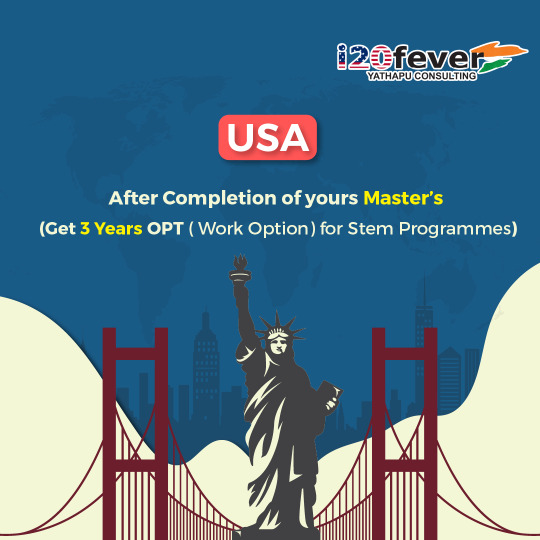
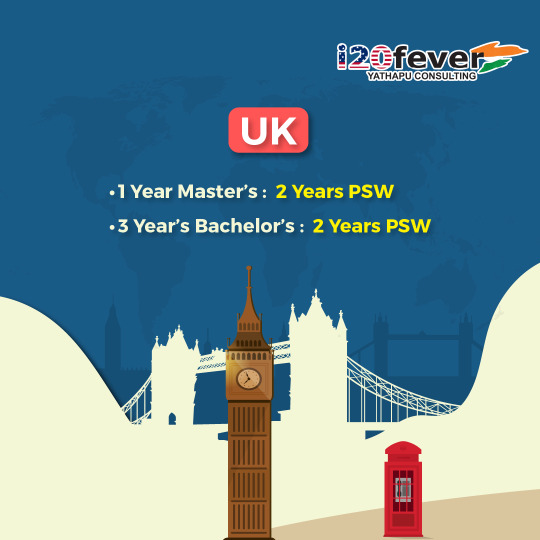
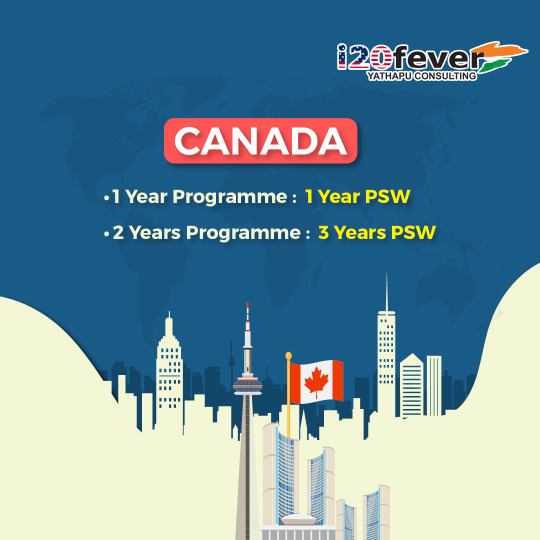

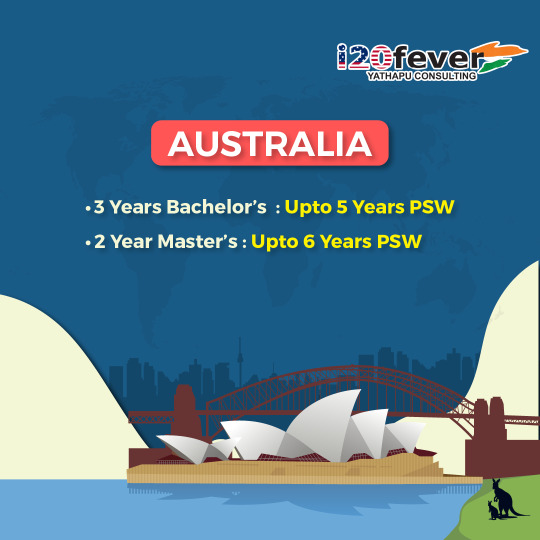

Post-study work visa options are a major allure for international students. It’s an opportunity to work in a new culture, gain new skills, and see the world from a new perspective. 👉Here are some countries that you can consider if you are planning to work after completing your course: https://www.i20fever.com/
#i20fever#aski20fever#studyabroad#abroadplans#studyinusa#poststudyworkvisa#pswp#studyinuk#studyinireland#studyincanada#studyinaustralia#feb2023#may203#summer2023#fall2023#sep2023#higherstudies#affordabletuition#profileevaluation#scholarships#highereducation#virtualcounseling#admissionsopen#universityadmission#affordabletuitionfee#topuniversities
0 notes
Link
Unlike India, education in Canada is generally funded and managed by the respected government of the province. Canada has around 96 public universities and 150 community colleges. As an international student you must go with only public-funded universities and colleges because of several reasons
#ielts canada#study abroad#education abroad#student loan abroad#college#course#student#study motivation#study notes#school#high school#education#educateyourself
1 note
·
View note
Video
instagram
Gocool Talks Episode 4 with @globalhutimmigration will be live tomorrow Morning on Zoom at 9.30 AM IST sharp. Be ready with all your Post Graduate Work Permit related questions. #pgwp #pswp #studyincanada🇨🇦 #studyincanada #studyincanada2020 #studyabroad #internationalstudents #foreigneducation #indiansincanada #covid19 #niagarafalls #ontariostudents #internationalstudentsincanada #canadastudentvisa #canadastudent #ielts (at Niagara Falls, Ontario) https://www.instagram.com/p/CBuzmcqlx2H/?igshid=12dhnx2jx95qi
#pgwp#pswp#studyincanada🇨🇦#studyincanada#studyincanada2020#studyabroad#internationalstudents#foreigneducation#indiansincanada#covid19#niagarafalls#ontariostudents#internationalstudentsincanada#canadastudentvisa#canadastudent#ielts
0 notes
Photo

Isaiah 53:3 He was despised and rejected and forsaken by men, a Man of sorrows and pains, and acquainted with grief and sickness; and like One from Whom men hide their faces He was despised, and we did not appreciate His worth or have any esteem for Him. https://www.instagram.com/p/B24IFJ-pSwP/?igshid=7mx241rgnjid
1 note
·
View note
